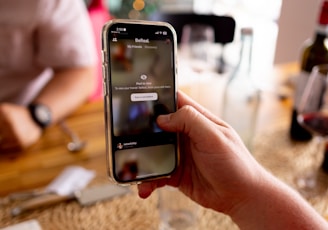Assistive technology assessment
Our bespoke service provides personalised digital assistive technology to people with disablilties, health conditions, neurodoversity, vulnerabilities or isolation.
Digital assistive technology helps improve the functional capabilities of people with disabilities when interacting with digital devices and services, covering everything from paying bills, social media, education and employment.
As part of our assessment process, MCS supplies new and approved reconditioned items and apps for free whch we set up and advise on their use. We also supply items such as free SIM cards with six months of free calls/texts/data.
Where we cannot supply items/tech, this is usually down to cost and in such cases we aim to identify where the system may offer appropriate funding and support applications.
We have ongoing programmes with the DWP’s Jobcentres and SLaM across the boroughs of South London. We provide access to personalised digital assistive technology onsite and at our centres, allowing people to integrate assistive tech into their daily routines, improve their immediate quality of life outcomes and maintain their health, independence and wellbeing. We are always mindful of helping people to live more independently in their community.
We always set out to learn from individuals and organisations right from the beginning to discover how we can best respond to each system in order to develop a bespoke yet flexible assessment process that takes into account the needs of claimants and patients, working with the lived experience of the barriers they face.
We work face to face, listening and understanding individual needs, background and journey. We also listen to the DEAs, OTs and other staff who share their extensive experience and knowhow. Because of this feedback, we are able to identify useful routes that will help us to apply and adapt our assessment model.
In the process with the DWP and NHS, for example, we learn about four areas:
— claimant/patient requirements
— Jobcentre/ward practice and culture
— DEA/OT requirements
— practical effects and implementation of legislation.




Our Digital Assistive Tech Service allows us to:
— be inhouse to provide a flexible responsive assessment and advice service that works around the rhythms and timetables of the institutions rather than imposing rigid weekly appointments.
— set up an inhouse digital assistive tech library that will show which devices are the best match for claimants/patients and also for staff if needed.
— learn about supporting aspects such as DWP preparation for employment and Access to Work, and NHS therapeutic leave, release, supported employment/individual placement support – and to develop a framework for this.
— work with employment advisors and OTs in establishing risk assessment procedures for digital assistive tech items and apps.
— provide where requested a Passport that can help claimants and patients to communicate their tech needs and abilities to educational establishments and places of employment etc.
— develop a model that explores the therapeutic use of digital assistive tech such as coding and music.
— implement coding classes.
